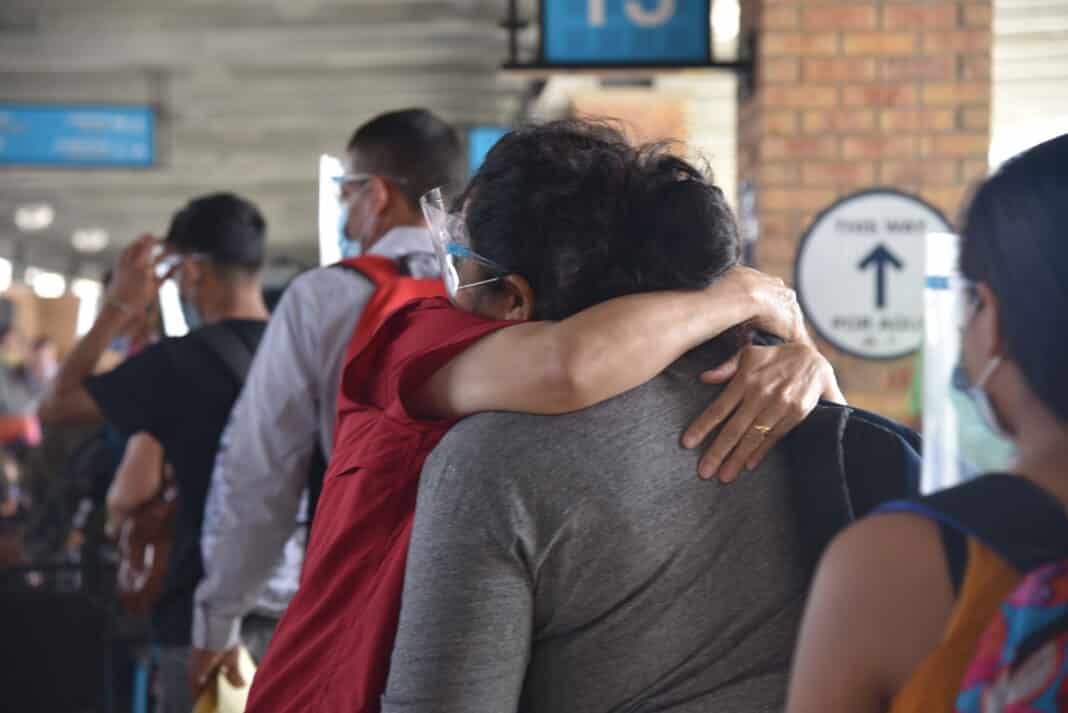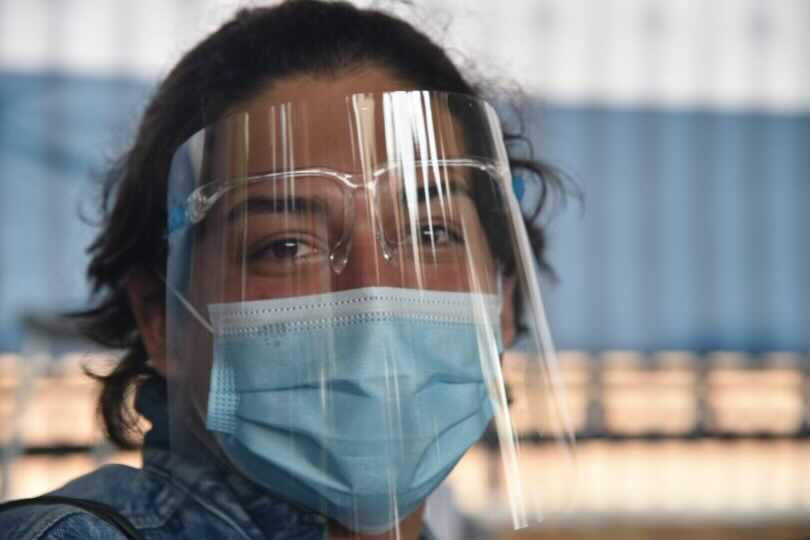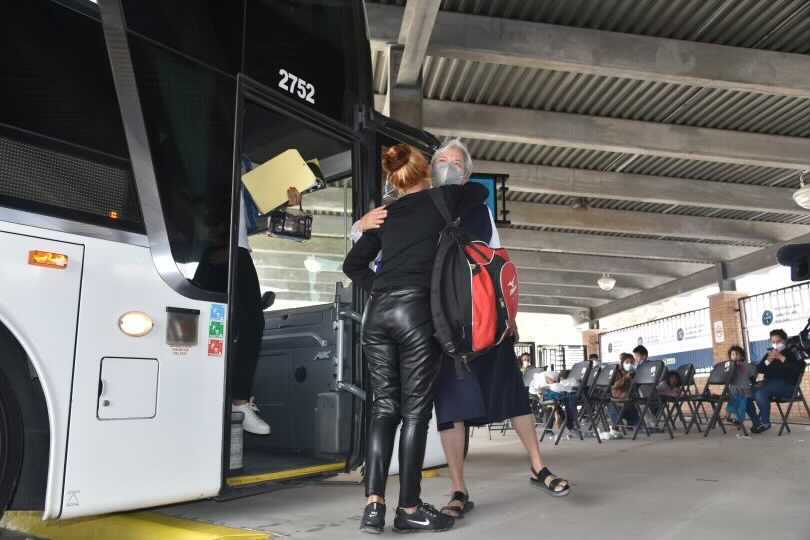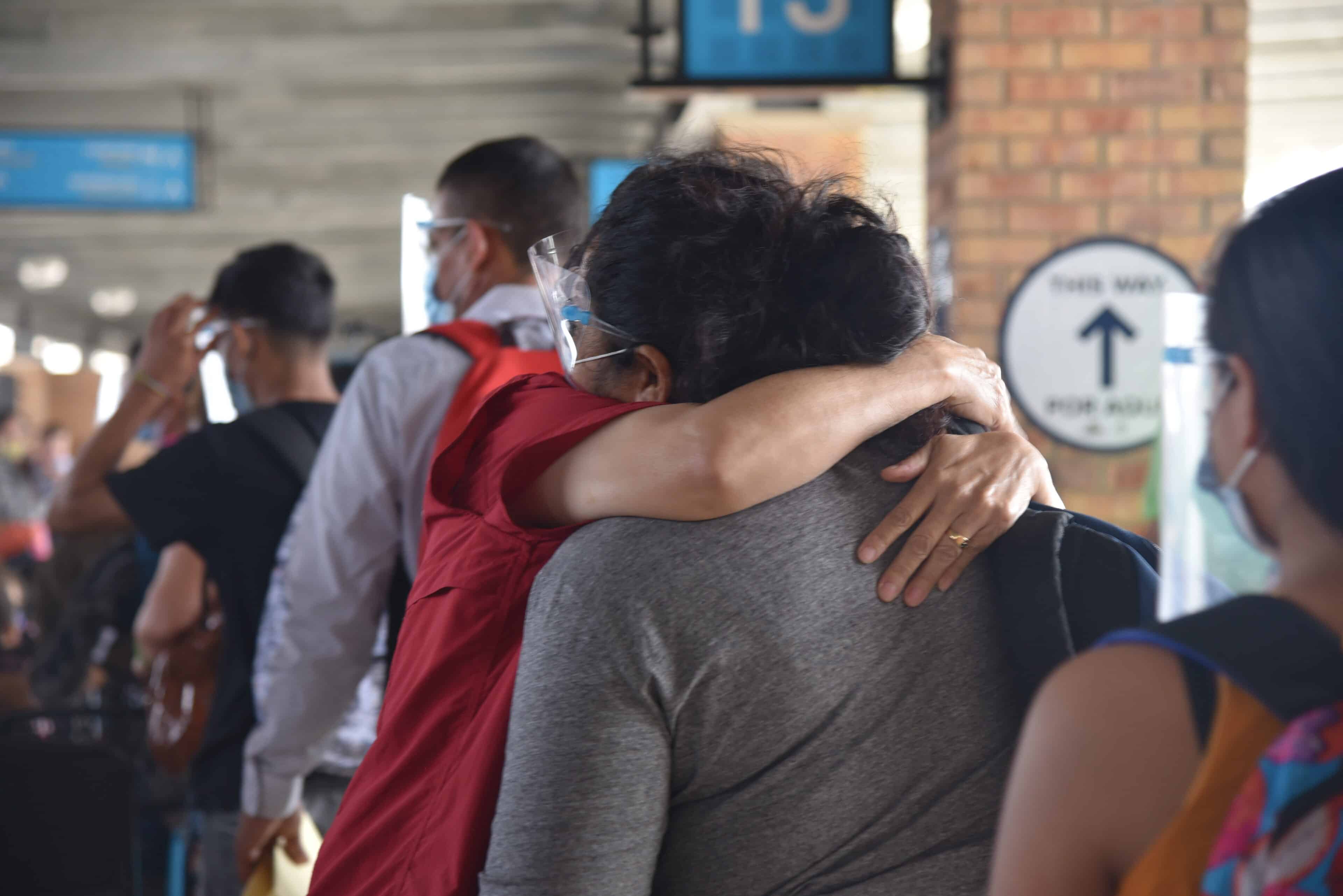BROWNSVILLE — Smiles hidden under face masks were hard to see, but undeniably present on the faces of migrants as they stepped on American soil Thursday afternoon at the Brownsville bus station.
It represented a step closer to reaching the American dream for the 27 people who crossed the Gateway International Bridge after living in Matamoros for nearly two years under the Trump administration’s Migrant Protection Protocols — a program that forced them to stay in Mexico waiting for U.S. immigration court hearings.
“For me it was an affirmation, it was a triumph of life, of humanity,” Sister Norma Pimentel, executive director at Catholic Charities of the Rio Grande Valley, said Thursday as she recalled seeing the group walk into the United States through the Brownsville port of entry with their heads “held high.”
Over 20,000 people with active asylum cases will be crossed and reprocessed in the coming days to continue pursuing their claims through the immigration court system from the U.S., a common practice prior to the controversial program.
Nearly 700 people were left living at the encampment in Matamoros, though thousands initially sought refuge there.
“It was a trauma to be there,” Omar Castañeda, a 54 year-old Honduran father of two, said from a seat at the Brownsville bus station Thursday.
Castañeda and his two sons, 13 and 9, were initially sent back to Mexico through Nuevo Laredo. U.S. immigration court hearings were scheduled early in the morning and required migrants living in the Mexican state of Tamaulipas — which the U.S. Department of State warns is a “do not travel” area due to crime and kidnapping — to walk through dark, dangerous streets.
During his travels from the Central American country, Castañeda and his sons were kidnapped in Monterrey but set free. They faced the threat again after they returned one day from their U.S. immigration court hearing.
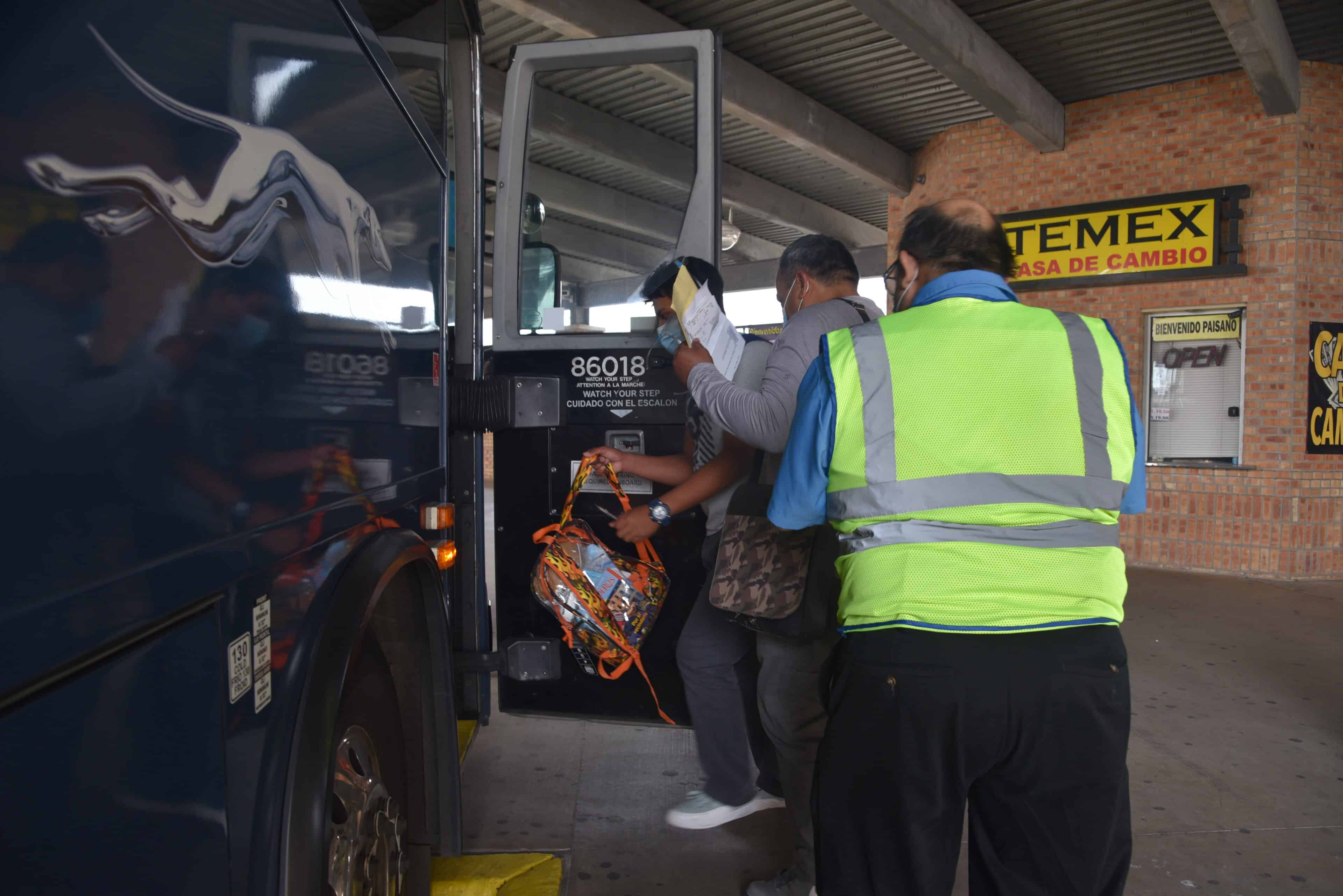
“We told them we came from the court, because that was the truth. We came from court, we had just come out. We showed them our papers,” Castañeda said.
Kidnappers, some involved with the cartels operating along the border, watched the bridge waiting to prey on migrants. MPP facilitated the process with regularly scheduled appointments.
“The maña asked for the password, what they ask for if you’re deported back there,” Castañeda said referring to the kidnappers. “If you don’t have it, they come and get you, kidnap you and ask for a ransom. If you don’t have it, they’ll kill you.”
He fled violence from his home country after his wife’s nephew was killed for refusing to join a gang. The aggressors were put in jail, but the other gang members persecuted the family, pushing them to leave their home, jobs and country.
Others fled personal persecution.
Fernanda Brown, a 20-year-old transgender woman, left El Salvador where she was victimized for her gender identity. Brown was living in Matamoros for 11 months.
Bright red-painted fingernails grasped a makeup bag, a packaged wig, and immigration documents set over her lap after being welcomed to the transit center in Brownsville. She didn’t know she would be coming into the U.S. until about 10 a.m., when she was notified she was selected.
“I’m happy because I’ll finally be in a safe country where I know there’s laws and I’ll be safer with the authorities. I’ll be able to be who I am,” Brown said.
Nonprofit organizations prepared with food, clothes, diapers and hugs were ready to address their needs, like Team Brownsville.
The organization formed after they heard reports of people sleeping on the streets when they were released from federal custody at the bus station too late to purchase a bus ticket.
Andrea Rudnik co-founded the group that’s shifted its mission to keep pace with the evolving immigration issues under the former presidential administration.
“We adapt all the time,” Rudnik said. “From the very beginning, from the mission of receiving people from the detention center, to the mission to doing the work on the bridge, to the mission of working in the plaza, to the mission of working in the encampment. We just adapted. So, it’s one more phase.”
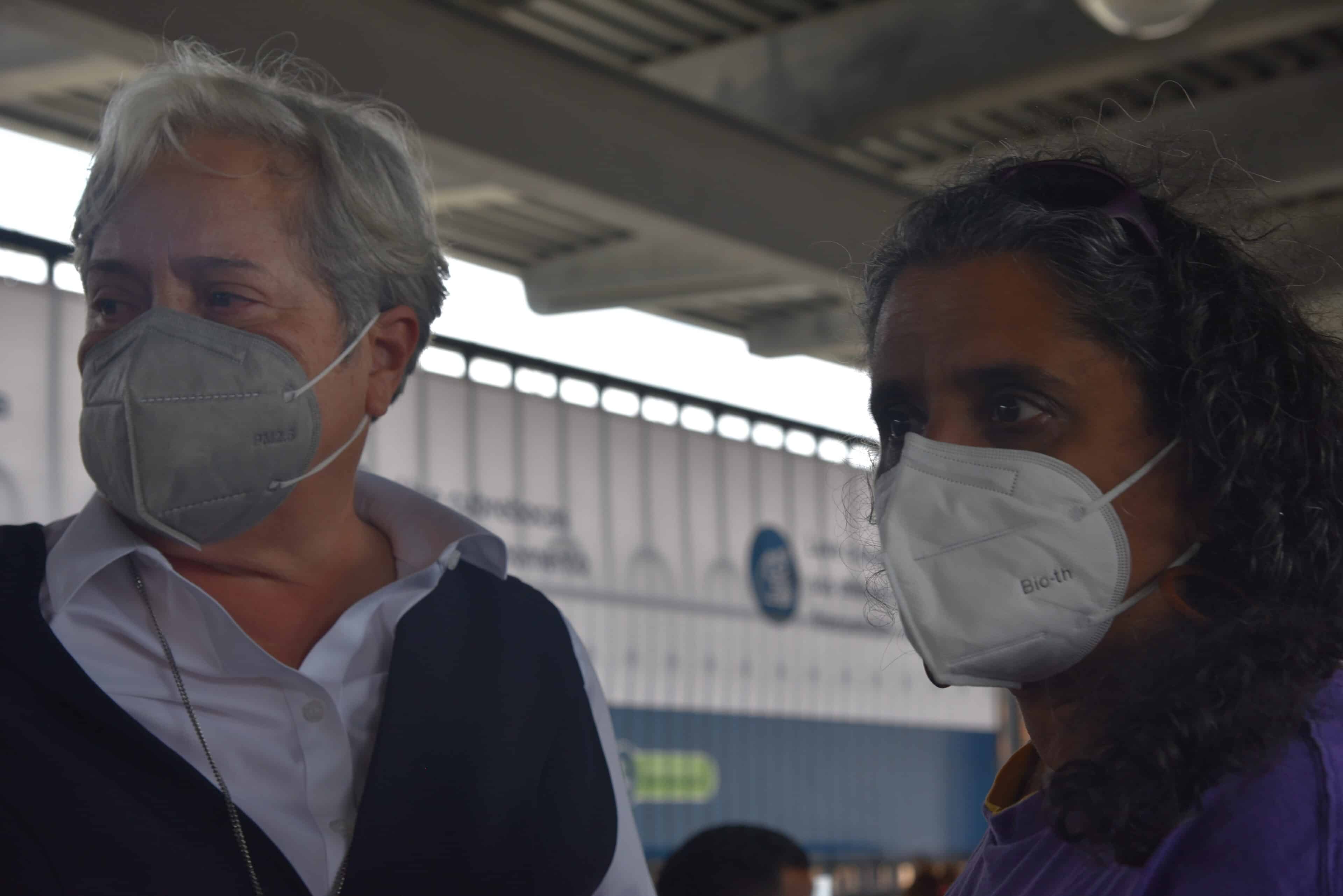
Attorneys who decided to help also kept limber.
Jodi Goodwin, an immigration attorney based in Harlingen, began hosting free legal chats, or charlas, with people seeking asylum but held back in Matamoros when the U.S. government kept them on waiting lists through a process known as metering.
“It’s been a long time — a long time,” Goodwin stressed.
Cases overwhelmed the lone attorney who later found support from other lawyers like Charlene D’Cruz. She arrived at the border in September 2019 after MPP was implemented in the Rio Grande Valley. The program now kept clients in Mexico and presented challenges to access of legal resources.
“In the middle of all of this we got hit with COVID,” Goodwin remarked. The mother of three turned into a full-time teacher during the day and shifted her work schedule to the evening.
As the pandemic improves as vaccination rates grow, and as MPP draws to an end, Goodwin expressed joy.
She said she was, “Happy we’re finally able to see them pass. And, hopefully, they have a chance at some kind of dignity and justice within the courts, and an ability to prepare for their cases in a safe environment and have access to legal counsel — all of those things are really important.”
Goodwin’s youngest started school again, allowing her time to shift back to a more ‘normal’ work schedule. She has expectations for her personal life, too. “For myself, I’m looking for no new border crisis.”
D’Cruz, her colleague, watched the arrival of the group at the Brownsville bus station, including some of her clients like the Castañedas, with expressions of angst and glee.
“Patience is what they tell me to have, so hard,” D’Cruz said.
Many others are not going to be part of the process, though they were part of MPP. Those with cases that resulted in denied asylum requests were decisions received as claimants struggled with legal access, peace of mind and personal safety.
“We need to make sure that those people who got screwed by the system are not left behind,” D’Cruz, who is a straight-talking attorney, said. “Why should they suffer anymore?”
Castañeda very nearly missed the opportunity to board a bus that left three minutes before it was scheduled to leave.
D’Cruz, accustomed to advocating for her client, rushed from the bus driver to the ticket booth and back to the bus driver. She convinced him to wait a few extra minutes to let the exhausted family of three board their bus. With some help and lots of running, the family boarded as D’Cruz jumped up celebrating with a fist in the air.
She vowed to keep striving for the rest who remain in Mexico.
“We have to keep fighting. We can’t relax,” D’Cruz said. “Good government, bad government, mediocre government — we have to keep fighting it. Because what’s good and what’s right and what’s just should prevail.”

